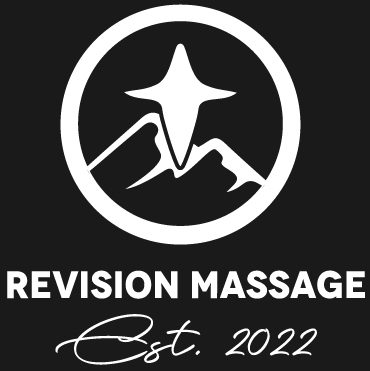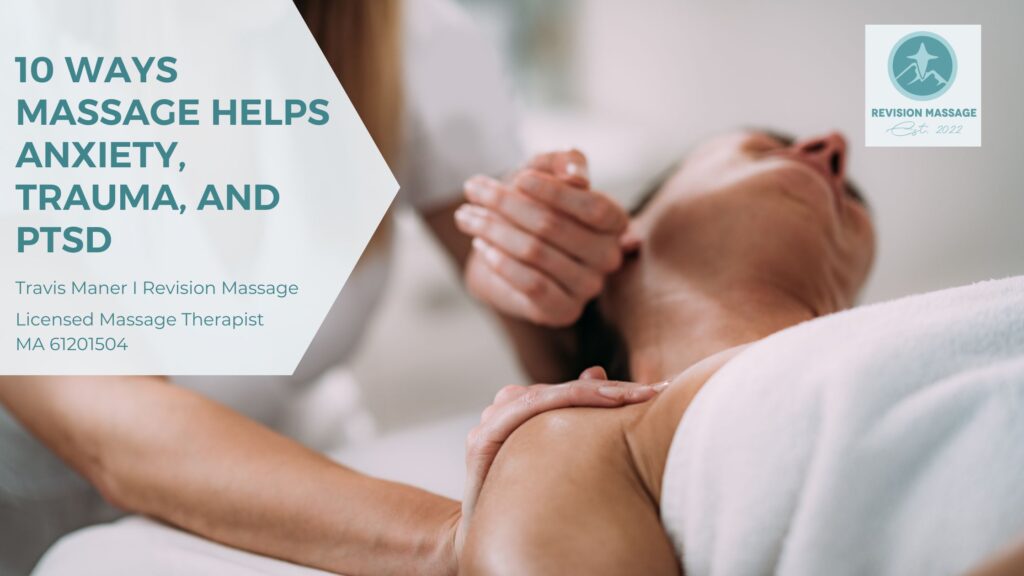Get help from someone who understands. Revision Massage offers customized, professional therapeutic massages from a United States Veteran
If you have post-traumatic stress disorder (PTSD), the last thing you want to do is go to therapy. After all, nobody wants to relive their trauma repeatedly, to work through it. But one option gaining traction among therapists and health care providers is massage therapy—and not just any type of massage therapy but specifically deep-tissue massage. This type of bodywork helps people manage symptoms related to PTSD by relaxing tense muscles and easing anxiety in a non-threatening way (unlike exposure therapy).
Massage can help reduce stress and anxiety.
Massage is a great way to reduce stress and anxiety. Stress and anxiety are common symptoms of PTSD, so massage can help you feel relaxed and calm.
Massage also helps you sleep better, another important part of managing your symptoms. Massaging your body allows you to become more connected with yourself and others, making it easier to trust other people again.
Massage therapy can be helpful for patients with Post-Traumatic Stress Disorder (PTSD) in several ways. Here are ten specific ways massage can soothe the trauma of PTSD.
- Regulates the autonomic nervous system: One of the key ways in which massage therapy can help people with PTSD is by regulating the autonomic nervous system (ANS). People with PTSD often have a dysregulated ANS, leading to hypervigilance and hyperarousal. Massage therapy can help activate the parasympathetic nervous system, responsible for the body’s relaxation response.
- Reduces muscle tension and anxiety: Many people with PTSD experience chronic muscle tension and anxiety as a result of their trauma. Massage therapy can help to release this tension, which can reduce anxiety and an overall sense of relaxation.
- Promotes relaxation: Massage therapy can help to promote relaxation by reducing the levels of stress hormones such as cortisol in the body. Cortisol helps improve sleep, reduce anxiety, and improve overall well-being.
- Improves mood: Studies have shown that massage therapy increases serotonin and dopamine levels in the body, which can improve mood and alleviate symptoms of depression.
- Helps with pain management: Many people with PTSD also experience chronic pain as a result of their trauma. Massage therapy can help reduce pain and discomfort by increasing blood flow to the affected areas and releasing muscle tension.
- Provides a safe, supportive touch: For some people with PTSD, touch can be triggering or uncomfortable. However, massage therapy provides a safe, supportive touch that can help to promote feelings of comfort and security.
- Helps to release trauma held in the body: The brain is not the only place where trauma is stored; it also holds onto the body. Massage therapy can help release tension and trauma held in the muscles and other soft tissues, which reduces physical symptoms such as pain, tension, and headaches.
- Improves body awareness: People with PTSD often experience a disconnection from their bodies as a result of their trauma. Individuals with PTSD who experience dissociation or numbness can benefit greatly from massage therapy as it can enhance body awareness and promote mindfulness.
- Provides a safe, supportive environment: Massage therapy provides a safe, supportive environment for people with PTSD to receive touch in a comfortable and safe way. The therapist can work with the client to establish clear boundaries and create an empowering and respectful treatment plan.
- Enhances the therapeutic alliance: Massage therapy can also enhance the therapeutic alliance between the client and therapist. It can help to establish trust, improve communication, and deepen the therapeutic relationship.
Overall, massage therapy can be a powerful tool for people with PTSD to help them feel more connected to their bodies, reduce symptoms of anxiety and tension, and promote a sense of well-being.
At Revision Massage in Monroe, you will get a professional therapist who approaches each client with empathy, sensitivity, and a trauma-informed perspective. By creating a safe and supportive environment, therapists can help clients to experience the healing power of touch and facilitate their journey toward recovery.
Why Choose Revision Massage for Relief from Trauma, Anxiety, or PTSD?
After serving six years as a Medic in the United States Army, Travis Maner decided to pursue his passion for massage therapy. As a licensed massage therapist (MA 61201504), Travis saw the need to offer relief to athletes, professionals, veterans, and those with chronic pain and stress through the healing benefits of Deep Tissue and Remedial Massage.
He is a proud member of the American Massage Therapy Association (AMTA) and Associated Bodywork and Massage Professionals (ABMP), and his clients highly value his remedial massage abilities. When he’s not working, Travis enjoys hiking, fishing, weight lifting, running, and spending time with his family.
Travis and his team are skilled massage experts and valued community members who will perform your massage treatment. They possess the tools, training, and experience to help you overcome specific physical and mental limitations that you may be facing.
Massage therapy can be a valuable addition to a comprehensive treatment plan for people with PTSD. It can help to reduce symptoms of anxiety and depression, improve mood, promote relaxation, and manage pain. However, it is important to work with a qualified massage therapist experienced in working with people with PTSD to ensure that the treatment is safe and effective.
Feel free to read our FAQS page for more information, or contact us for more details. See our website for discounts and promotions!


